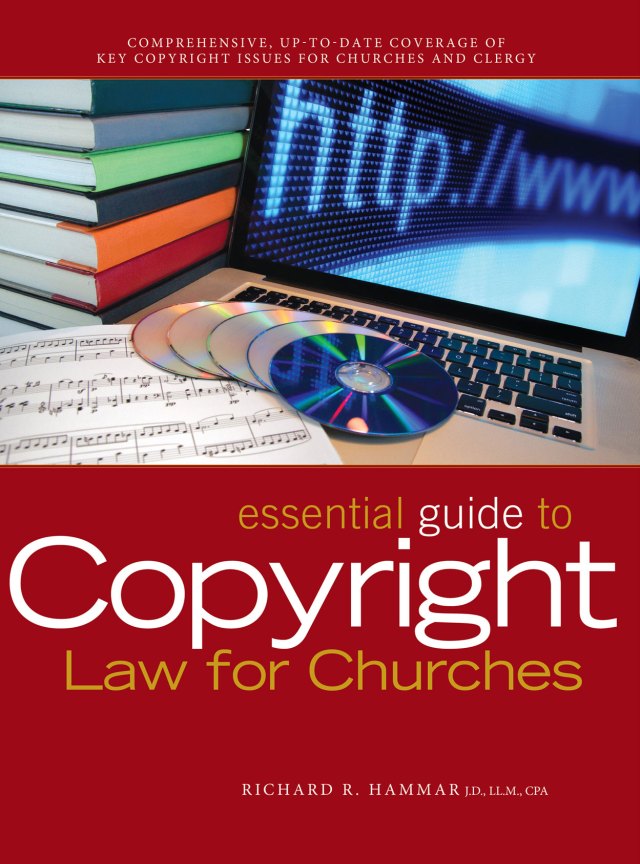Imagine buying a can of Kapow!, cracking it open, tipping it to your mouth and tasting something oddly unfamiliar—dissimilar from every can of Kerpow! that you have ever purchased.
The cans look alike and promise a similar effect. You did not notice a couple letters’ difference in the name. Confidence shaken, you hesitate to buy another can the next time you are thirsty and instead look for a substitute. This dilemma is what trademarks and service marks are intended to avoid.
Why churches should consider trademarks
Consumers begin to associate marks with particular kinds and qualities of products and services not only in the for-profit sector, but also the non-profit sector.
The mark relieves the consumer of the inconvenience of undertaking due diligence on every product and service available.
Which is to say, the consumer can defer to the mark owner the obligation (i) to ensure its can of Kerpow! will look and taste the same as every other can, and (ii) to police imposters and knock-offs.
Like it or not, the public comes to associate the names and logos of churches, associations of churches, and denominations with certain doctrinal, liturgical, worship, and other distinctives just as it associates them with secular products and services.
Some see religious “brands” as commercializing that which is holy, which is sacrilegious. But there are important reasons why churches, associations, and denominations may want to look at word marks and design marks from a different vantage point.
A word mark is just that, a word or set of words used to identify goods or services, ranging from a product on a store shelf to a particular association, organization or denomination. If a potential parishioner were to see a sign that says “Presbyterian Church,” they should know what to expect when they walk inside.
Design marks are logos or symbols that serve as shorthand brand signals. Often, logos are designed to catch a potential customer’s (or congregant’s) eye as they pass by.
Doctrinal implication for churches
The most important distinctive and theological apologetic for a word mark may be doctrinal.
A churchgoer will be as surprised as the consumer purchasing a can of Kapow! if the experience proves unfamiliar. The consequences may be similar to when the visitor considers returning the following week. Just as counterfeit products may have different ingredients, churches with confusingly similar names may adhere to different statements of faith, moral commitments, and worship styles.
Recognizing this, a federal court ruled that the Episcopal Church in South Carolina is the rightful owner of the names “Diocese of South Carolina,” “The Episcopal Church,” and “The Episcopal Diocese of South Carolina,” as well as the Episcopal shield and the diocesan seal. Ordered to cease using the names, the “Anglican Diocese of South Carolina” has now come to stand for more conservative theology.
Even small congregations have challenged alleged usurpation of trademarked terms like “Mighty Men” or defended against efforts by commercial brands to cancel their mark and use similar ones.
Explore copyright basics, duration, rights and remedies in Richard Hammar’s Essential Guide to Copyright Basics.
Four elements of trademarking
Churches interested in trademarking must consider four elements.
1. The mark must be distinctive.
Marks can be “word marks” in standard character format without regard to the font, style, size, or color, or they can be “design marks” comprising a graphic design or image with or without wording such as a stylized logo. The term “church” is not distinctive and cannot be monopolized as a word mark, but can be disclaimed as part of a phrase with other unique words or when presented as part of a logo to give a “distinct commercial impression.”
2. A trademark or service mark cannot conflict with any other mark because of confusing similarity.
Marks do not have to be identical to violate this requirement. All that is required is for marks to share elements of spelling or style that would lead a reasonable observer to believe the marks such as Kapow! and Kerpow! are related.
3. The mark must be used in commerce.
“Use in commerce” means bona fide use of a mark in the ordinary course of trade, and not merely to reserve a right in a mark. Churches engage in commerce along with other nonprofits when advertising, buying, selling, and offering products and services as on the church marquee, in the church bookstore, or online. When mark usage is de minimis (or trivial), churches risk challenges to the mark to cancel it.
4. A mark must be a source identifier for products or services.
Put another way, the mark must represent the church, such that every time a churchgoer visits a church utilizing the word mark or design mark, the distinctive aspects of that church are present. Some modern church attendees will never have physically attended a church and know it only by its published name, logo, and image.
Church plants
Viewed as intellectual property, marks are an important tool to ensure churchgoers are not confused. This is especially true with church plants as they establish themselves in their communities.
The ® symbol indicates that a word, phrase, or logo is a registered trademark for the product or service.
The ™ symbol is used in connection with an unregistered mark to provide notice to potential infringers that rights in the mark are claimed in connection with specific goods or services.
Because marks can be licensed, a mark licensor such as The Episcopal Church in South Carolina has the legal right to prevent a member church that fails to adhere to the licensor’s standards from continuing to use the mark.
By analogy, if a franchise operator does not follow a franchisor’s recipes, purchase the franchisor’s ingredients or products, conform with the franchisor’s staffing and management models, or maintain its facility according to the franchisor’s standards, then the franchisor will prevent the franchisee from continuing to use its mark.
Churches, associations and denominations
Churches, associations, and denominations can utilize the same licensing rights to police sound doctrine and other standards.
Intellectual property rights in connection with a mark can arise by usage under the common law specific to a geographic area.
Some states also enable organizations to register marks statewide. But the surest way to protect a mark nationally and internationally is to register it with the United States Patent and Trademark Office. Registrants also need to defend and police their registration, meaning that they will need to review or hire counsel or others to make sure new applicants for marks or users of marks do not infringe their own marks.
Imposters, knockoffs, copycats, counterfeits, and fakes are not unique to the commercial sector—churches are also vulnerable to them.
Trademarks and service marks are intellectual property rights that can confer the same beneficial rights on churches as other organizations. They are an effective means of (i) distinguishing themselves from other religious institutions and commercial enterprises and (ii) deterring fraud, while (iii) preserving their doctrinal and worship distinctives.
Intellectual Property Attorney Thomas W. Brooke contributed to this article. He is a partner in Holland & Knight’s Washington, D.C. office.



